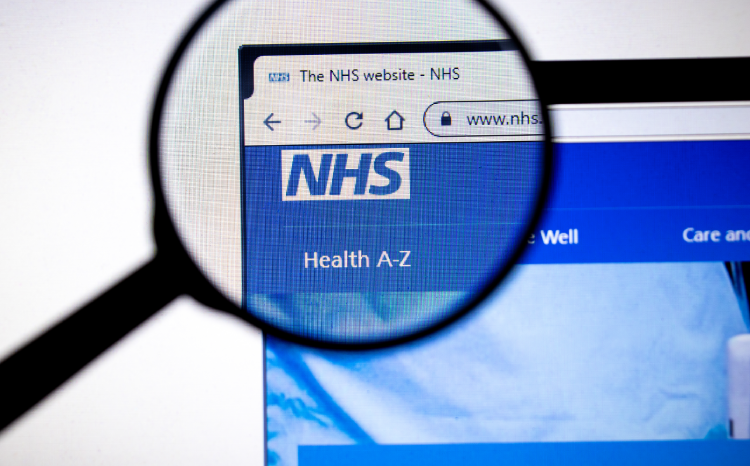What role can leaders play in advancing NHS environmental sustainability?
- 31 January 2023

The worrying reminders of climate change in 2022 reinforced the importance of UK health services reaching their net zero goals. Digital can play a role here, but what should digital leaders be doing to ensure progress? A recent Digital Health roundtable, run with Virgin Media O2 Business, considered this important question. Claire Read reports.
For Kelly Calvert, environmental sustainability is an inherent part of her day-to-day work at North Tees and Hartlepool Hospitals NHS Trust, central to each and every project in which she is involved. Learn that and the immediate assumption might be that she works in estates, or perhaps finance. But Calvert is actually the trust’s chief nursing information officer.
“I would say sustainability is very much entwined in everything that we are doing,” says Calvert, who spent many years practising as a clinical care nurse before moving into the clinical change role she now holds alongside that of CNIO.
“Obviously we are on a digital journey within the NHS and the driving force of it is improving our patient and clinical services,” she says.
“When we are working towards virtual wards, appointments online, telephone consultations, they’re all very much driven by the patient experience – getting patients in quicker, improving our services.
“But the environmental side of it is in the background, because everything we’re doing is making improvements to sustainability.”
It is a reflection which raises an interesting question: what role could – and should – digital leaders play in advancing the green agenda in the NHS?
In late November, Digital Health convened a virtual roundtable debate to explore just that. Run in association with Virgin Media O2 Business, the event had representatives from a variety of perspectives (trust, integrated care system and supplier alike). Together, our panellists – which included Calvert – debated to what extent sustainability is currently being actively considered in the digital health sphere.
The green calculation
Certainly, at the national level a strong connection is being made between increased digitisation and potentially reduced environmental impact. All four UK nations have pledged to make their health services net zero.
In October 2020, NHS England declared an ambition for its service to become fully carbon net zero by 2045 – balancing any greenhouse gas emissions with measures to remove those emissions from the atmosphere. And at the national body’s transformation directorate, there is a specific digital net zero workstream.
“We’re looking at digital as both being an enabler of sustainability and then also its carbon costs,” said Ruth Moore, a data analyst at NHS England.
“We’re trying to take a net gain holistic approach. So we’re looking at the carbon emissions associated with various digital actions, such as sending an email or saving a file, but then also looking at all the things that digital can do for sustainability.”
This might involve complex calculations, she said. With legacy IT, “there can be a lot of carbon emissions already associated with manufacture and end of life stage of different pieces of hardware, separate to the energy it’s currently using”. In this instance, is it better to keep using the old laptop or buy a new one – which will have its own pre-existing carbon debt due to its manufacture?
“I think it’s really important we look at the lifecycle of digital hardware and what we can do with that,” suggested Mark Burton, health and social care lead of Virgin Media O2 Business.
“It’s been evidenced that recycling older devices [through passing them to other people who need them] means less e-waste and digitally enables more people.”
Breadth of possibilities
It’s one practical example of how digital can support greater sustainability. When Mark Thomas considers this area, he sees a multitude of possibilities. One of the most significant: the ability of digital to support care closer to home.
Thomas is chief digital and information officer for Bedfordshire, Luton and Milton Keynes Integrated Care Board. Avoiding hospital admissions wherever possible – enabling patients to receive care at home, or in local non-hospital health settings – is a key priority for the ICB, in common with organisations across the country. The reasons are multiple, but sustainability certainly plays a role.
“There’s a lot we can do with digital to empower care closer to home,” Thomas suggested. “The virtual ward is an example of a service [that allows you to] treat the resident securely and safely at home, meaning less travel [and less impact on the environment in turn].”
He also spoke of the possible contribution of digitally-enabled teleconsultation, citing a project in Cumbria and Lancashire as evidence. There, a specialist team of 15 stroke consultants is providing out of hours clinical advice thanks to broadband connectivity.
Clinicians are able to see and speak to patients via teleconference, view CT scans, and recommend appropriate treatment. That includes thrombolysis, blood clotting drugs which must be provided quickly after a stroke to have the greatest impact.
It was an example, Thomas said, of the breadth of digital projects which can have an impact on sustainability. “[To prove that remote advice on] thrombolisation of stroke patients is going to have an impact on the green agenda, you might have to dig.
“But when you do dig, the answer is going to come back as yes – because there is a far better outcome for the patient and far less travel for them and everyone around them.
“So we really need to take the blinkers off when we’re looking at this [area of the impact of digital on environmental sustainability] and think much wider than the immediate things we can count.”
Pushing for more
It was a point echoed and reinforced by Martin McFadyen. McFadyen is head of public sector at Virgin Media O2 Business, the company that provided the communications network used for the telestroke service.
He said he welcomed an increasing focus on environmental factors in some business plans for digital services. He did question, however, whether that attention could go further – greater weighting on environmental considerations when assessing tender bids, for instance.
“When the social value policy was introduced in procurement [by which all public sector organisations are required to consider social value when making procurement decisions], I said it would only be demonstrated as effective when someone awards a contract based on the social value rather than on cheapest price.
“It’s the same thing here. We will only see environmental sustainability [become central to digital activity in the NHS] when it can overcome the barriers of budgets, time, resources and so on.”
For now, our panel agreed digital leaders should continue to take any opportunity for action on sustainability. “Look for synergies between sustainability and service design considerations, whether improving a specific part of care or cybersecurity or user-centred design, and understand how to maximise that,” suggested NHS England’s Moore.
“It’s not going to be sustainability driving all these things. But if you’re doing it anyway, and you can maximise the carbon savings from it, then why not?”
Panel:
- Mark Burton, health and social care lead, Virgin Media O2 Business
- Kelly Calvert, clinical change lead and chief nursing information officer, North Tees and Hartlepool Hospitals NHS Foundation Trust
- Martin McFadyen, head of public sector, Virgin Media O2 Business
- Ruth Moore, data analyst for Digital Net Zero programme, NHS England
- Mark Thomas, chief digital and information officer, Bedfordshire, Luton and Milton Keynes Integrated Care Board
- Claire Read, contributing editor, Digital Health (roundtable chair)




